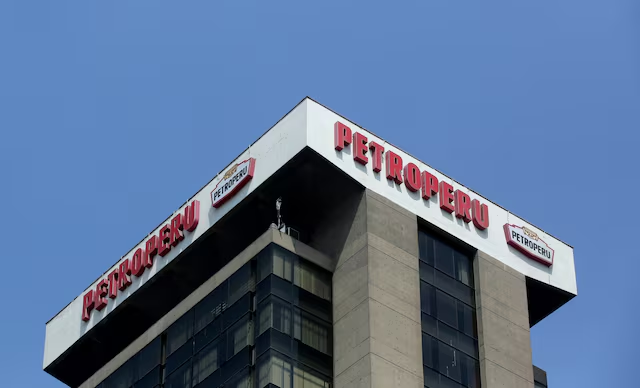Liberia: LEC Blames Regional Grid Fault For Power Cuts
Ghana: COMAC Board Chairman Urges Star Oil And GOIL PLC CEOs To End Social Media Banter
Russia Develops New Inverter Prototype For Solar Power Plants
GLOBELEQ Appoints Alasdair Martin As Director Of Private Customer Solutions
Globeleq, a leading independent power company in Africa, has appointed Alasdair Martin as Director of Private Customer Solutions, a role central to the company’s growth strategy focused on innovation and sustainable transformation in Southern Africa.
In his new role, Alasdair will lead the origination, structuring, and execution of private power partnerships and bespoke energy solutions for energy-intensive customers.
The position is pivotal to expanding Globeleq’s footprint in the commercial energy market by identifying and securing long-term partnerships with private offtakers, enabling them to access reliable, cost-effective, and sustainable power.
With nearly two decades of experience at Anglo American, Alasdair has led several major initiatives, including a US$3 billion carbon and innovation portfolio, the development of renewable energy ecosystems, and serving on the leadership team that established Envusa Energy. The joint venture with EDF Renewables has played a significant role in the liberalisation of Southern Africa’s energy landscape.
Most recently, he led the redesign of Anglo American’s operating model, delivering transformational value and embedding cultural change across its global operations. His track record includes driving carbon-neutral strategies, securing investment for large-scale renewable projects, and pioneering digital and AI tools to improve operational efficiency.
Globeleq’s Chief Development Officer, John Smelcer, said: “Southern Africa’s energy sector is evolving rapidly, creating opportunities for innovative partnerships. Alasdair’s combination of technical depth, commercial insight, and sustainability vision will help us deliver tailored solutions to meet the needs of industrial and commercial customers while supporting the region’s energy transition.”
Alasdair Martin added: “I am excited to join Globeleq as it expands its role in shaping Southern Africa’s energy future. This is an opportunity to deliver innovative, customer-focused solutions that accelerate the shift to cleaner power and create lasting value for businesses and communities. Globeleq’s commitment to sustainability and partnership resonates strongly with my passion for building resilient energy ecosystems that drive growth and positive impact.”
Ghana: NPA Rejects Proposal To Remove Fuel Price Floor Policy; COMAC, IES Back Retention Of Policy
Angry Peru State Oil Firm Workers Begin Three-Day Strike Over Privatization Plan
Unionised workers of Peru’s state-run oil company, Petroperu, on Monday commenced a three-day industrial strike to protest plans to privatize parts of the firm, although the company insisted operations remained normal and the government declared the walkout unlawful.
According to a report by Reuters, about 30% of the company’s 2,200 unionised workers joined the strike, according to José Luis Saavedra, general secretary of the administrative workers’ union.
“The speed with which the government wants to privatize Petroperu is striking,” Saavedra said, as quoted by Reuters.
In a statement following the declaration of the strike, Petroperu said all its facilities were operating normally and assured the public that the national fuel supply would not be affected.
The company added that Peru’s labour ministry had ruled the strike call “inadmissible,” although the decision is subject to a three-day review.
The labour action follows a plan approved in late December by President José Jeri to overhaul the financially troubled company.
The plan seeks to attract private investment into key assets, and Economy Minister Denisse Miralles said last week that the first management contracts with private firms could be signed as early as June.
Petroperu is burdened with significant debt, having received up to $5.3 billion in government aid between 2022 and 2024 to avert bankruptcy.
Nigeria: Apapa Residents Scoop Diesel From Overturned Tanker Amid Danger
Ghana: Cape Coast And Surrounding Communities To Experience Power Interruption On Tuesday
Zambia, Tanzania Agree On Monthly Fuel Offloading At Dar es Salaam Port
Ghana: Navy Foils Illegal Fuel Bunkering Operation In Volta Region, Seizes Fuel-Laden Canoes
Ghana: Energy Minister Petitions IGP To Probe Assault On Energy Ministry Staff By Police Officers
Ghana: Police Officers Assault Energy Ministry Staff On Board Bus
WAPCo To Shut Down Facilities In Nigeria, Benin, Togo And Ghana For Routine Maintenance
















